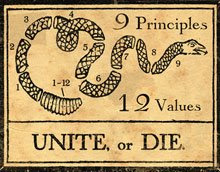(except in rare cases)
Like yesterday. Stocks were pulling back (over 100 points on the DJI), gold futures were declining (hanging around 890/oz.), nothing too amazing was going on with the US Dollar or Euro. Then, the Federal Reserve Bank spoke and an inflation bomb went off.
The Fed, which had already been paying the Dollar Ferry double overtime, announced it would buy over a trillion dollars in debt consisting of US Treasuries and mortgage-backed securities. Of course, the Fed doesn't have a trillion dollars, so they will simply create new accounts that magically have money in them. No, seriously, that is literally what they do.
Conventional thinking says (or thinks, I guess) that if new money appears out of thin air, then inflation happens. Conventional thinking goes on to think that when inflation happens the dollar isn't worth poop so I better get my hands on some other kind of money like the Euro or real gold.
So that's what happened. As soon as that news came out, the US Dollar (versus a basket of other currencies) dropped like a bowling ball in a swimming pool, and the Euro and gold futures went up like a fart in a swimming pool. The Euro gained around 6 cents, which is a HUGE one day move, and gold went from 886/oz. to 950/oz., which is also a huge one day move.
Stocks also reversed dramatically, ending the day 90 points (DJI) to the positive. Long US Treasury bonds also had an interesting day yesterday. If the stock market is as good an indicator of social mood as I believe it is, it looks like the mood of the masses is softening a little. Good. This is a well-deserved break (probably several months) that may chop this depression up into two or three pieces before it's really over.
Here's the thing about inflation. I sorta make fun of "conventional thinking" because, while there's no doubt this is an inflationary move, it's not going to make much of a dent in the 10+ trillion dollars of deflation we've experienced through stock, bond, real estate and commodity price losses that started around October of 2007.
Subscribe to:
Post Comments (Atom)




No comments:
Post a Comment